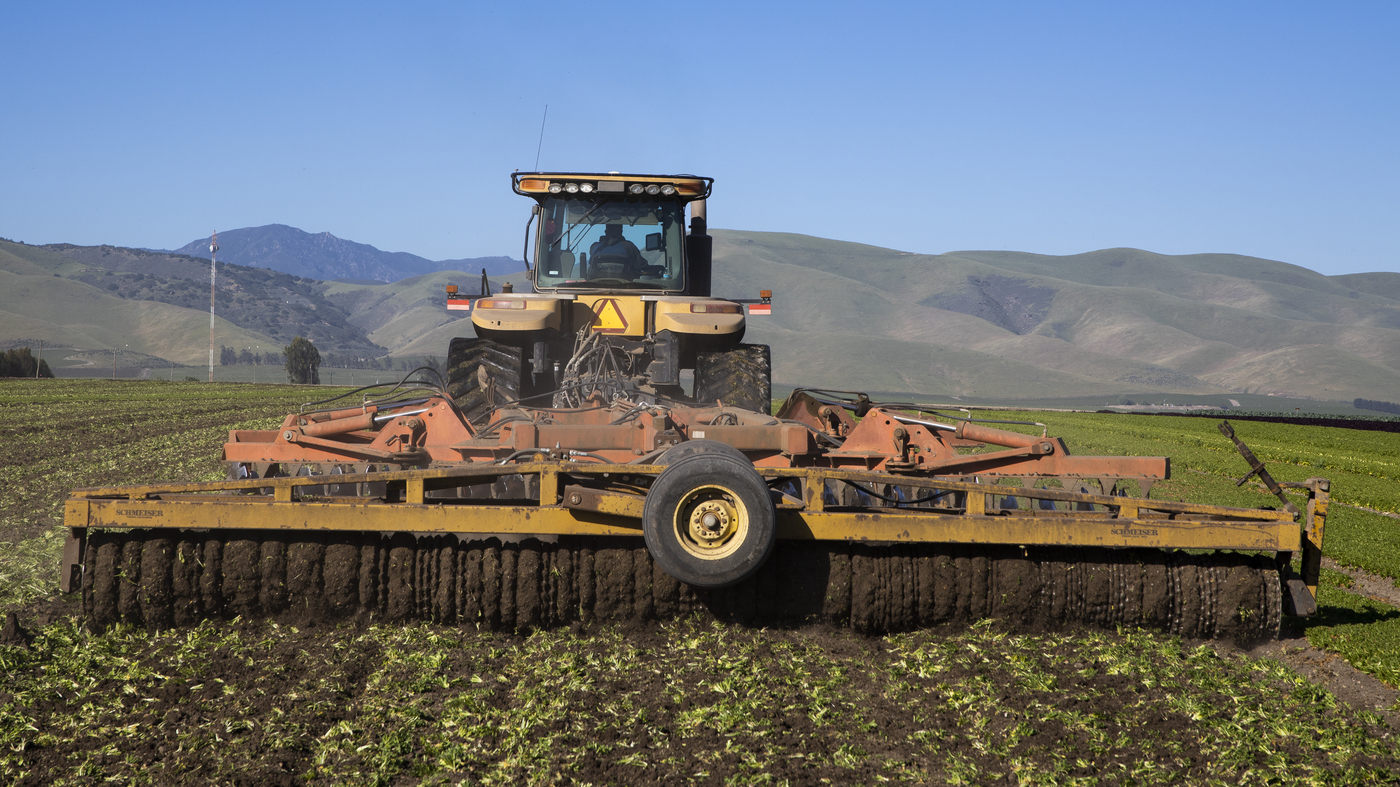
A new report from the Environmental Working Group finds some of the USDA’s “climate-smart” farming practices getting taxpayer dollars likely don’t reduce emissions.
Brandon Bell/Getty Images
From gas-belching cows to polluting fertilizer, the agriculture sector makes up an ever growing portion of the country’s planet-heating pollution. That’s why the Biden administration and Congress have allocated billions of dollars to the U.S. Department of Agriculture through federal climate legislation. The money is going to farmers to change their practices with the aim of reducing climate pollution.
But a new report from the non-profit Environmental Working Group finds billions of federal funding subsidizes farming practices that might not reduce climate emissions. The USDA relies on independent scientific studies that suggest these provisional farming practices could reduce climate pollution. But the agency itself has not yet quantified the practices’ actual climate impact.
“If these unproven practices stay on the list, a large portion of the money will go to practices that aren’t likely to reduce greenhouse gas emissions,” says Anne Schechinger, Midwest director for the Environmental Working Group. “And that’s in direct opposition to Congress’s intentions.”
Silvia Secchi is a professor in the department of geographical and sustainability sciences at University of Iowa and was not involved with the report. She says the federal government should quantify that the billions of taxpayer dollars will actually go towards slowing global warming before – not after – sending the money to farmers.
“This jumping the gun of paying the farmers and then finding the evidence is super problematic,” Secchi says. “After the…
Read the full article here

Leave a Reply